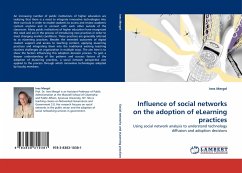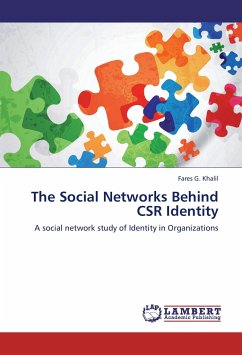An increasing number of public institutions of higher education are realizing that there is a need to integrate innovative technologies into their curricula in order to enable students to access and review academic content anytime and to connect with each other outside of the classroom. Many public institutions of higher education have recognized this need and are in the process of introducing new practices in order to meet changing market conditions. These practices are generally referred to as eLearning practices. Besides the intended outcomes of digital student support and access to teaching content, applying eLearning practices and integrating them into the traditional existing teaching routines challenges an organization in multiple ways. The aim here is to show the factors influencing this adoption decision process. To gain a deeper understanding of the patterns and success factors of the adoption of eLearning practices, a social network perspective was applied to the process through which innovative technologies adopted by faculty members.
Bitte wählen Sie Ihr Anliegen aus.
Rechnungen
Retourenschein anfordern
Bestellstatus
Storno








